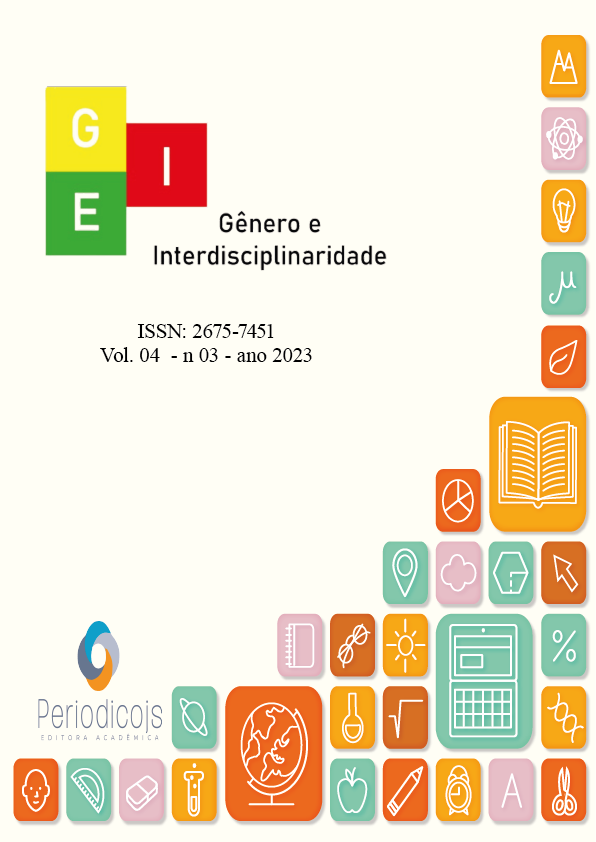Abstract
Understanding Education as a fundamental right of human beings may seem essential, but this recognition dates from a recent period. It was only in 1948, in the Universal Declaration of Human Rights established by the United Nations (UN) where Education was officially registered as an essential right for every citizen. Since then, the subject has been the subject of constant studies and approaches, among them that since it is a right for all, education must be inclusive, not restricted to just allowing common access, but in a way that every citizen , regardless of their characteristics, limitations or deficiencies, can receive a quality education that is adaptable to their needs. This article aims to reflect on special and inclusive education and the role of teachers with students with intellectual disabilities. As specific objectives, it is expected to conceptualize what intellectual disability is, and to understand the limits and possibilities of teaching, especially in the multifunctional resource room.
References
AAMR [American Association on Mental Retardation]. LUCKASSON, R. et al. Mental Retardation – definition, classification, and systems of support. Washington, DC, 2002.
ALCÂNTARA, J. N. de. Processos de constituição da criança com deficiência intelectual na educação infantil. 2019. 160 f. Tese (Doutorado em Educação) - Universidade Federal de Sergipe, São Cristóvão, SE, 2019.
ALMEIDA, R. V. de M. Escolarização de alunos com deficiência intelectual: a construção de conhecimento e o letramento. 2017. 240 f. Dissertação (Mestrado em Educação) - Universidade Federal de Goiás, Catalão, 2017.
BRASIL. Lei de Diretrizes e Bases da Educação Nacional. Lei no. 9394, 20 de dezembro de 1996. Brasília, 1996. Disponível em:
<http://www.planalto.gov.br/ccivil_03/leis/L9394.htm>. Acesso em: 02 jan. 2023.
BRASIL. Ministério da Educação. Diretrizes operacionais da educação especial para o atendimento educacional especializado (AEE) na educação básica.
Brasília, DF: MEC/SEESP, 2008
DA Silva, R. A. et al. A inclusão no brasil: a deficiência intelectual e as contribuições de Vigotski. Educação, vol. 9, nº 1, p. 93–106, 2020.
DE AZEVEDO, M. M.; ROSSI, L; FERNANDES, S. A. F. Trabalho e Educação: instrumentos de inclusão da pessoa com deficiência na sociedade. Revista eletrônica pesquiseduca, v. 13, n. 29, p. 136-158, 2021.
FERNANDES, Dos Santos, A. P. C.; DENARI, F. E. Pessoa com deficiência: estigma e identidade. Revista da FAEEBA-Educação e Contemporaneidade, v. 26, n. 50, p. 77-89, 2017.
FRASER, B. Cognitive disability aesthetics: visual culture, disability representations, and the (in) visibility of cognitive difference. Toronto: University of Toronto Press, 2018.
LEMOS, R. D. D. Direito ao trabalho como elemento de inclusão social da pessoa com deficiência: análise da Lei nº 13.146/2015. Revista de Informação Legislativa,
v. 54, n. 214, p. 153-173, 2017.
MINAYO, M. C. S. (org.) Pesquisa social: teoria, método e criatividade. Petrópolis – Rio de Janeiro, Vozes, 1994.
NASPOLINI, L. I. A proteção aos direitos da pessoa com deficiência. Revista do CEJUR/TJSC: Prestação Jurisdicional, v. 5, n. 1, p. 229-251, 2017.
PASIAN, M.; MENDES, E. G.; CIA, F. Atendimento educacional especializado: aspectos da formação do professor. Cadernos de Pesquisa, vol. 47, n. 165, p. 964- 981, 2017.
PEDROSO, F. S.; ROTTA, N. T. Transtorno da linguagem. In: ROTTA, N. T.; OHLWEILER, L. RIESGO, R. S. (Org.). Transtornos de aprendizagem: abordagem neurobiológica e multidisciplinar. Porto Alegre, Atmed, 2016.
SANTOS, C. U. N. O aluno diagnosticado com deficiência intelectual: limites da perspectiva classificatória. 2017. 102 f. Dissertação (Pós-Graduação em Educação) - Universidade Federal de Sergipe, São Cristóvão, SE.
SEABRA JUNIOR, M. O; LACERDA, L. C. Z. Atendimento Educacional Especializado: planejamento e uso do recurso pedagógico. Rev. Bras. Educ. vol.
2018,
TARTUCE, F. O Estatuto da Pessoa com Deficiência e a capacidade testamentária ativa. Revista Pensamento Jurídico, v. 10, n. 2, 2017.





